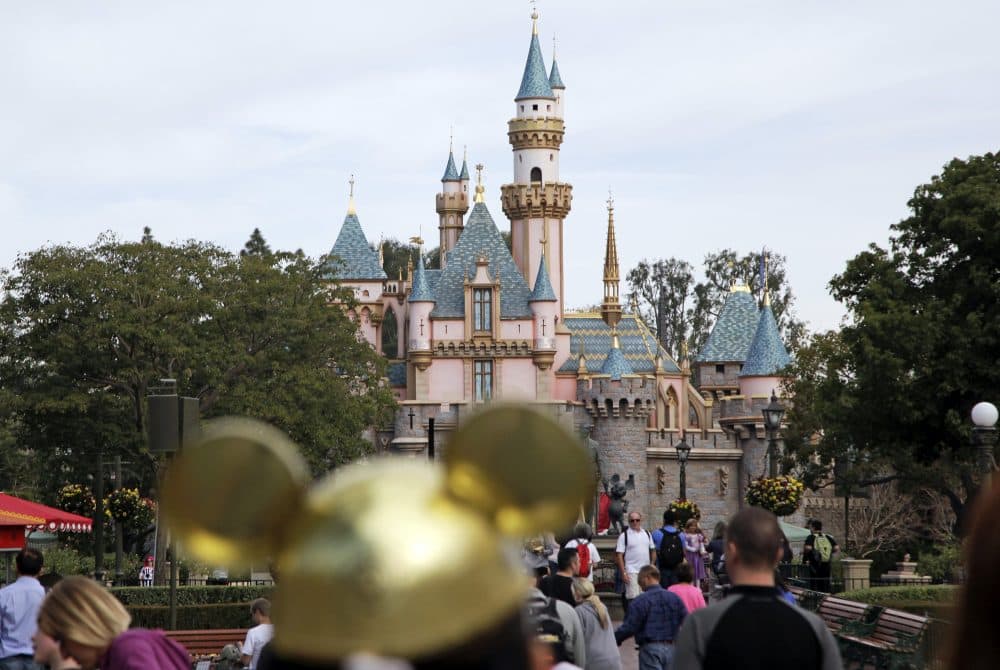Advertisement
Commentary
Boston Film Critic Head Explains Solidarity With LA Peers After Disney's Strike Against Press

Tom Meek, a film critic for The ARTery, is the president of the Boston Society of Film Critics.
Update:
On Tuesday afternoon, Disney told the New York Times that the company "agreed to restore access to advance screenings" for Los Angeles Times critics.
Our original post:
A recent retaliatory measure enacted by the Walt Disney Company triggered a rapid solidarity response by film critics groups, including ours in Boston, over the weekend.
On Tuesday morning, four critics groups announced they would drop Disney-produced films from award consideration until the company rescinds its blackout of the Los Angeles Times.
The Boston Society of Film Critics joined the Los Angeles Film Critics Association, the New York Film Critics Circle and the National Society of Film Critics in speaking out against Disney’s systematic blackballing of the Times from its press screenings, interview opportunities and other media access.
The situation erupted last week when the LA Times film critics were barred from attending the press screening of the Disney-produced Marvel adventure “Thor: Ragnarok.” The studio was upset by the paper’s Sept. 24 report about the company and its financial arrangements with — and political influence in — the city of Anaheim (where Disneyland is nestled). Disney cited the paper’s “disregard for basic journalistic standards” as the basis for the move. (The company did not respond to my requests for information.)
Advertisement
Given the course of events, there’s a grave irony that arises in that a company, so effusive in its pursuit to maintain a wholesome, "family-friendly" image, is the hand behind such Machiavellian manipulation tactics.
Critics here in Boston, learning of the ban over the weekend, found the action unethical and analogous to the types of freedom of the press infringements the First Amendment sought to prevent from the government. The concern was further deepened by the public disservice this move led to, as the Times' readership relies on the paper for timely news and criticism.
On Saturday, Boston Globe critics Ty Burr and Janice Page reached out to fellow members of the Boston Society of Film Critics proposing we take a stand that could impact Disney more stridently than a mere statement of opposition.
Over the years, the BSFC has proven to be impressively prescient in its ability to point the path for eventual Oscar winners, picking the winning film months before the Oscars more often than any other organization.
Taking that consideration off the table (for films like "Thor: Ragnarok," "Star Wars: The Last Jedi" and "Coco") seemed the most effective and direct means of garnering the studio’s immediate attention. Disney, owner of Pixar, factors strongly in the animation categories each year.
Going further, most members pledged — as much as they could influence the decisions at their respective outlets — to not engage Disney in studio-initiated promotional pieces (interviews and previews) that tend to bolster a film’s profile prior to opening. Reviews however were not part of the non-binding pledge, though several members stated that they felt an inclination to boycott Disney press screenings all together.
One major concern in crafting the collective statement denouncing Disney and informing the studio that “all four critics' organizations have voted to disqualify Disney’s films from year-end awards consideration,” was that it would also, by definition, impinge the art and artists involved in any Disney-backed production. The statement acknowledged the undesired side effect as “extraordinary,” but stated, “Disney’s response should gravely concern all who believe in the importance of a free press, artists included.”
Had Disney done nothing after the LA Times ran its Sept. 24 piece other than refute it in a press release or -- assuming there was enough viable legal footing — taken the paper to court, none of this would be news.
Instead the mega conglomerate decided to assail journalism — and the critics are now striking back.
This article was originally published on November 07, 2017.